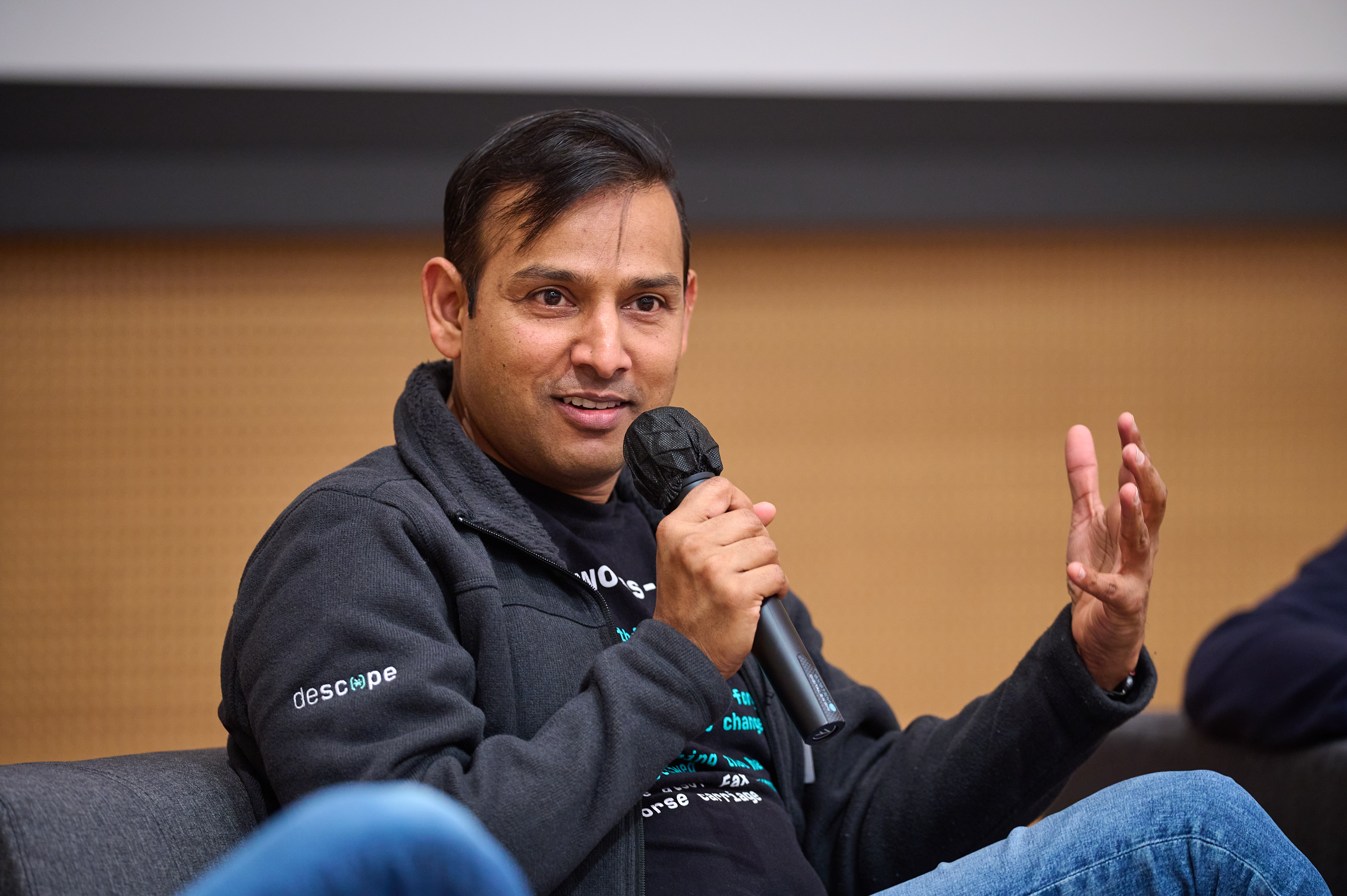Rishi Bhargava | Source | Co-founder at Descope

Rishi Bhargava
Rishi Bhargava is a co-founder and CRO at Descope, a stealth startup building something in the authentication space for application developers. In a career spanning over 20 years, Rishi has run product, strategy, go-to-market, and engineering for category-creating cybersecurity startups and large enterprises. Before Descope, Rishi served as VP of Product Strategy at Palo Alto Networks, which he joined via the acquisition of Demisto, a security operations startup. Rishi was a co-founder at Demisto where, under his stewardship, the company created and later led a new “security orchestration” category within 3 years before being acquired. Prior to Demisto, Rishi was VP and GM of the Datacenter Group at Intel Security, launched multiple products at McAfee (acquired by Intel), and played a key role in product strategy and growth at change management startup Solidcore (acquired by McAfee).
Rishi is passionate about technology and serves as an active investor and advisor to multiple startups in Silicon Valley and India, some of which have already seen successful exits. Rishi has over a dozen issued patents in the area of Computer Security and holds a B. S. in Computer Science from the Indian Institute of Technology, New Delhi.
-
Descope
Co-founder
-
Azure AD 'Log in With Microsoft' Authentication Bypass Affects Thousands
The "nOAuth" attack allows cross-platform spoofing and full account takeovers, and enterprises need to remediate the issue immediately, researchers warn.
Article -
Serial entrepreneur Rishi Bhargava on building another cybersecurity company
Rishi Bhargava and the team of entrepreneurs behind Demisto’s $560 million exit are back at it with a new startup building technology in the customer identity market. The new company, called Descope, raised an abnormally large $53 million seed-stage funding round with ambitious plans to take on rivals big and small in the customer identity and authentication space. On this episode of the podcast, Bhargava joins Ryan to talk about the VC funding landscape, the confusing 'identity' category, the responsibilities of vendors in the identity ecosystem, the emergence of Microsoft and Google as big security players, and some thoughts on the Israeli startup scene.
Podcast -
Authentication, Authorization and User Management - Rishi Bhargava, Descope - Techstrong TV
Descope recently announced its $53 million seed funding round and emerged from stealth to launch a frictionless, secure, developer-friendly authentication and user management platform. Descope enables developers to add authentication, user management, and authorization capabilities to consumer and business applications with a few lines of code. The platform offers different integration flavors based on developer preferences to make deploying, maintaining, and updating user journeys across the application lifecycle easier.
Podcast
-
Rishi Bhargava, co-founder of Descope, shares one example using Descript, an AI tool for videos. “Descript has used AI to change the entire video editing paradigm. By targeting people who are comfortable working on online documents, which is pretty much all of us, Descript has opened the door for someone who has never edited videos before to pick it up quickly.”
-
Google says this should cut down on phishing
One of the main benefits to passkeys is that they are unphishable, Rishi Bhargava, co-founder at Descope, said.“Passkeys are not something a user can write down in a notebook or accidentally share with cybercriminals. Because the private key on your device is only meant to work with the public key on the account where the passkey was created, fake credential harvesting sites are also not a concern,” he added.
Bhargava said while multi-factor authentication is critical for reducing phishing, the extra verification step can cause friction for consumers.
-
Rishi Bhargava, co-founder of Descope, shares why a low-code approach can offer longer-term advantages. “Abstractions are faster, and building supporting systems outside the developers’ core expertise is quicker when visualized as a low or no-code abstraction,” he says. “New developers can more easily pick it up rather than poring over old code, and lots of custom code takes developer resources to maintain and update with time.“


